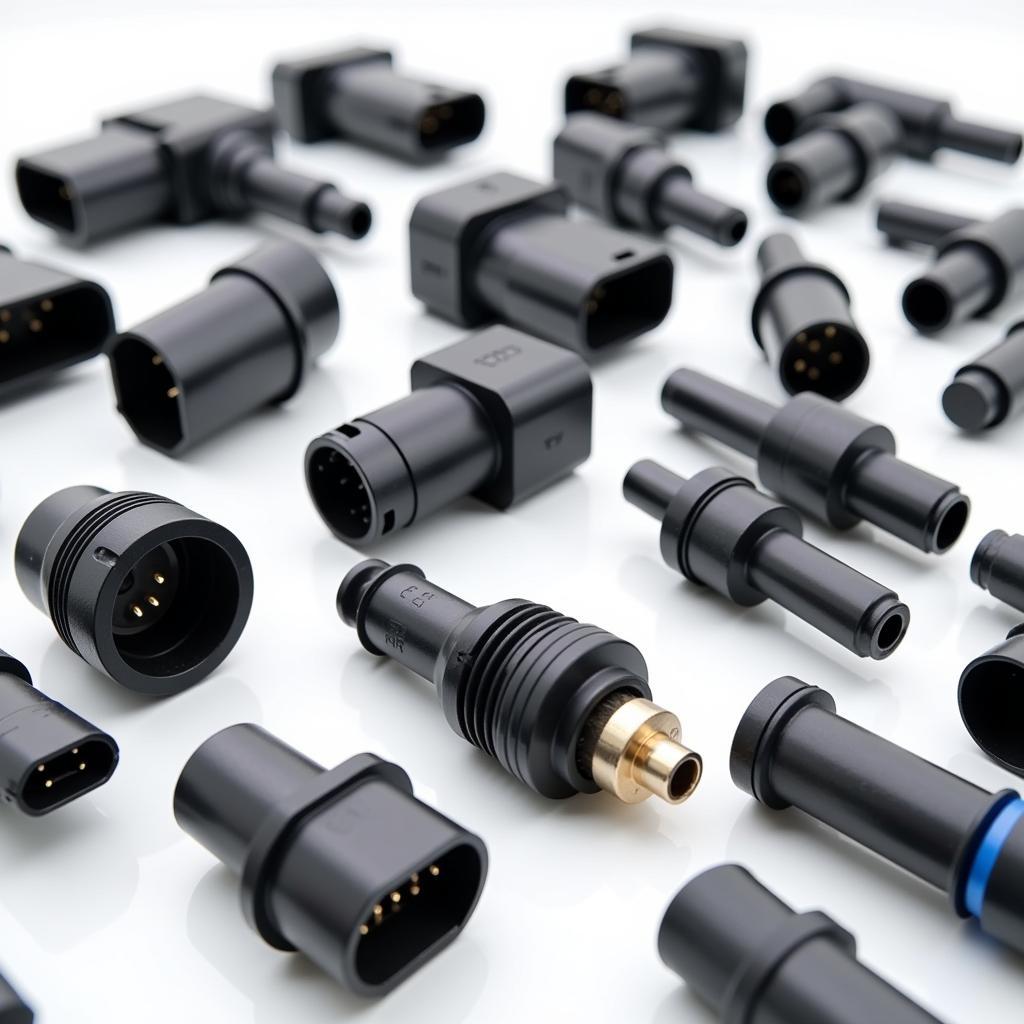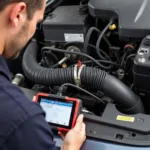Finding the right car diagnostic sensor can feel like navigating a maze. With countless options available, each promising the moon, it’s easy to get lost. Whether you’re a seasoned mechanic or a car enthusiast looking to DIY, you need a sensor that’s reliable, accurate, and fits your budget. This guide is designed to help you navigate the world of car diagnostic sensors for sale, empowering you to make an informed decision.
Understanding the Importance of Car Diagnostic Sensors
Modern vehicles are complex machines with intricate networks of electronic systems. Car diagnostic sensors act as the eyes and ears of these systems, constantly monitoring various components and reporting back to the vehicle’s computer. This information is crucial for:
- Identifying Issues: Sensors detect anomalies in your engine, transmission, emissions, and other critical systems.
- Early Detection: By identifying problems early, sensors help prevent costly repairs down the line.
- Improved Performance: Sensors help optimize engine performance, fuel efficiency, and emissions control.
Types of Car Diagnostic Sensors and Their Applications
From monitoring engine temperature to tracking tire pressure, there’s a specialized sensor for nearly every vehicle function. Some common types include:
- Oxygen (O2) Sensor: Measures the amount of oxygen in the exhaust gases, helping adjust the air-fuel mixture for optimal combustion and reduced emissions.
- Mass Air Flow (MAF) Sensor: Determines the amount of air entering the engine, essential for calculating fuel delivery and maintaining the correct air-fuel ratio.
- Manifold Absolute Pressure (MAP) Sensor: Measures the pressure inside the intake manifold, providing information about engine load and throttle position.
- Throttle Position Sensor (TPS): Monitors the position of the throttle plate, informing the engine control unit (ECU) about how much fuel to inject.
- Crankshaft Position Sensor: Detects the position and rotational speed of the crankshaft, crucial for ignition timing and fuel injection.
- Camshaft Position Sensor: Determines the position of the camshaft, ensuring proper valve timing and engine synchronization.
Factors to Consider When Buying Car Diagnostic Sensors
Before you hit “buy now” on that tempting car diagnostic sensor for sale, consider these factors:
- Vehicle Compatibility: Ensure the sensor is compatible with your vehicle’s make, model, and year.
- Sensor Type: Choose the right sensor for the specific diagnostic needs.
- Quality and Brand Reputation: Opt for reputable brands known for producing accurate and durable sensors.
- Price: While price is a factor, don’t compromise quality for a bargain. Investing in a reliable sensor pays off in the long run.
- Warranty and Return Policy: Check for warranties and return policies in case you encounter defects or compatibility issues.
Where to Buy Car Diagnostic Sensors
You can find car diagnostic sensors for sale from various sources, both online and offline:
- Online Retailers: Amazon, eBay, and specialized automotive parts websites offer a wide selection.
- Local Auto Parts Stores: Your local auto parts store can provide personalized assistance and may have sensors in stock.
- Dealerships: While generally more expensive, dealerships guarantee compatibility with your specific vehicle.
Tips for Choosing the Right Car Diagnostic Sensor
- Consult Your Owner’s Manual: Your vehicle’s manual provides information on the specific sensors used.
- Use Online Compatibility Checkers: Many online retailers offer tools to verify sensor compatibility with your vehicle.
- Seek Professional Advice: If unsure, consult a trusted mechanic for recommendations.
Conclusion
Choosing the right car diagnostic sensor for sale is crucial for accurate diagnostics and optimal vehicle performance. By understanding the different types, considering key factors, and seeking expert advice when needed, you can make an informed purchase that keeps your car running smoothly for miles to come.
FAQs about Car Diagnostic Sensors
Q: How often should I replace my car diagnostic sensors?
A: While there’s no set replacement schedule, most sensors last between 50,000 to 100,000 miles. It’s best to consult your owner’s manual or a trusted mechanic for guidance.
Q: Can I install a car diagnostic sensor myself?
A: While some sensors are relatively easy to replace, others require specialized tools and knowledge. If you’re unsure, it’s best to leave the installation to a professional.
Q: What are the signs of a failing car diagnostic sensor?
A: Common signs include illuminated check engine light, decreased fuel efficiency, rough idling, and poor engine performance.
Q: How do I know which sensor is triggering my check engine light?
A: You’ll need an OBD2 scanner to read the specific diagnostic trouble codes (DTCs) stored in your vehicle’s computer.
obd2 car diagnostic tool screwfix
Q: Where can I find reliable information about car diagnostic sensors?
A: Reputable online resources, automotive forums, and your vehicle’s owner’s manual are great places to start.
Need help with your car diagnostics? Contact us via WhatsApp: +1(641)206-8880, Email: [email protected]. We are available 24/7.


